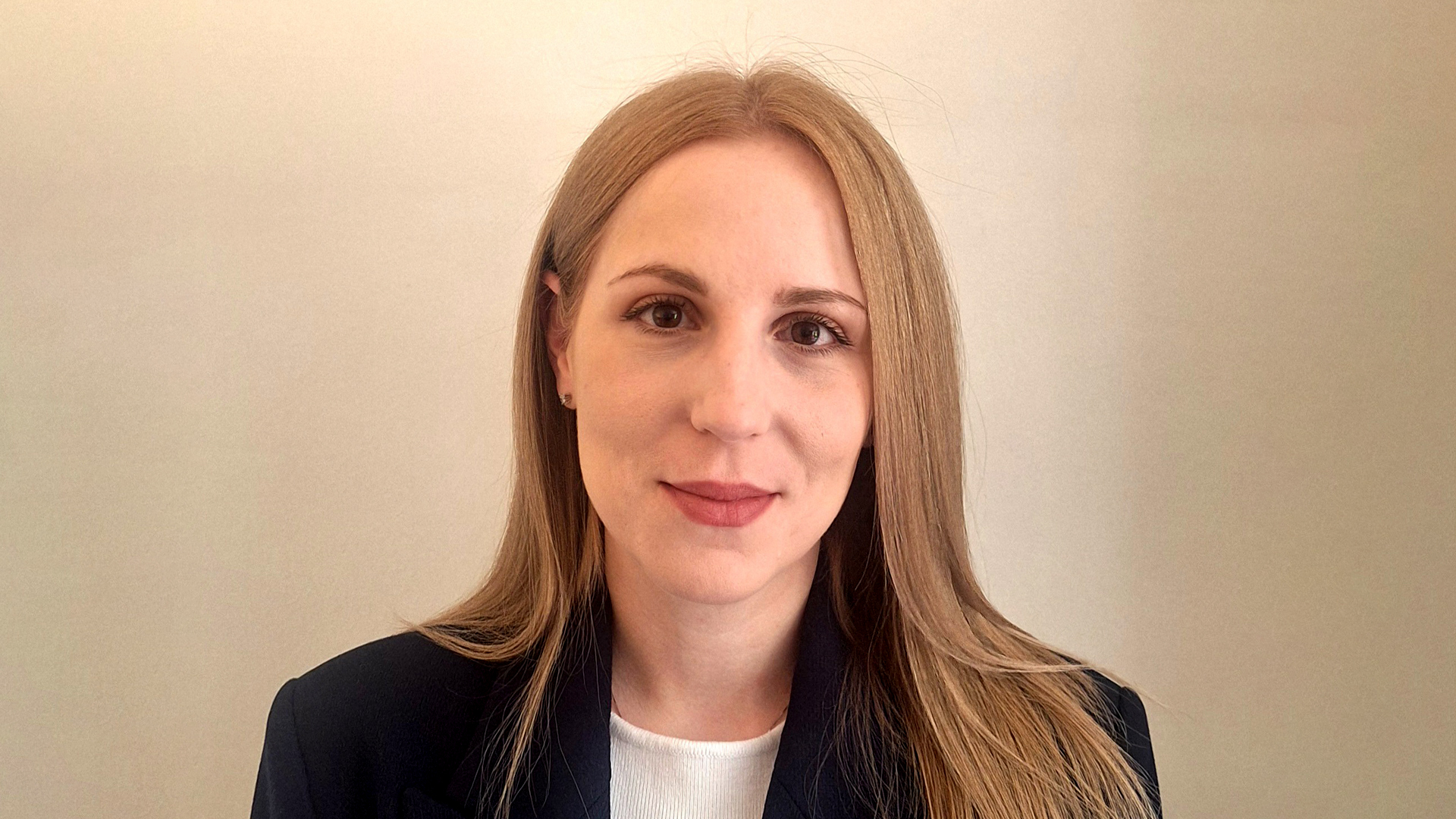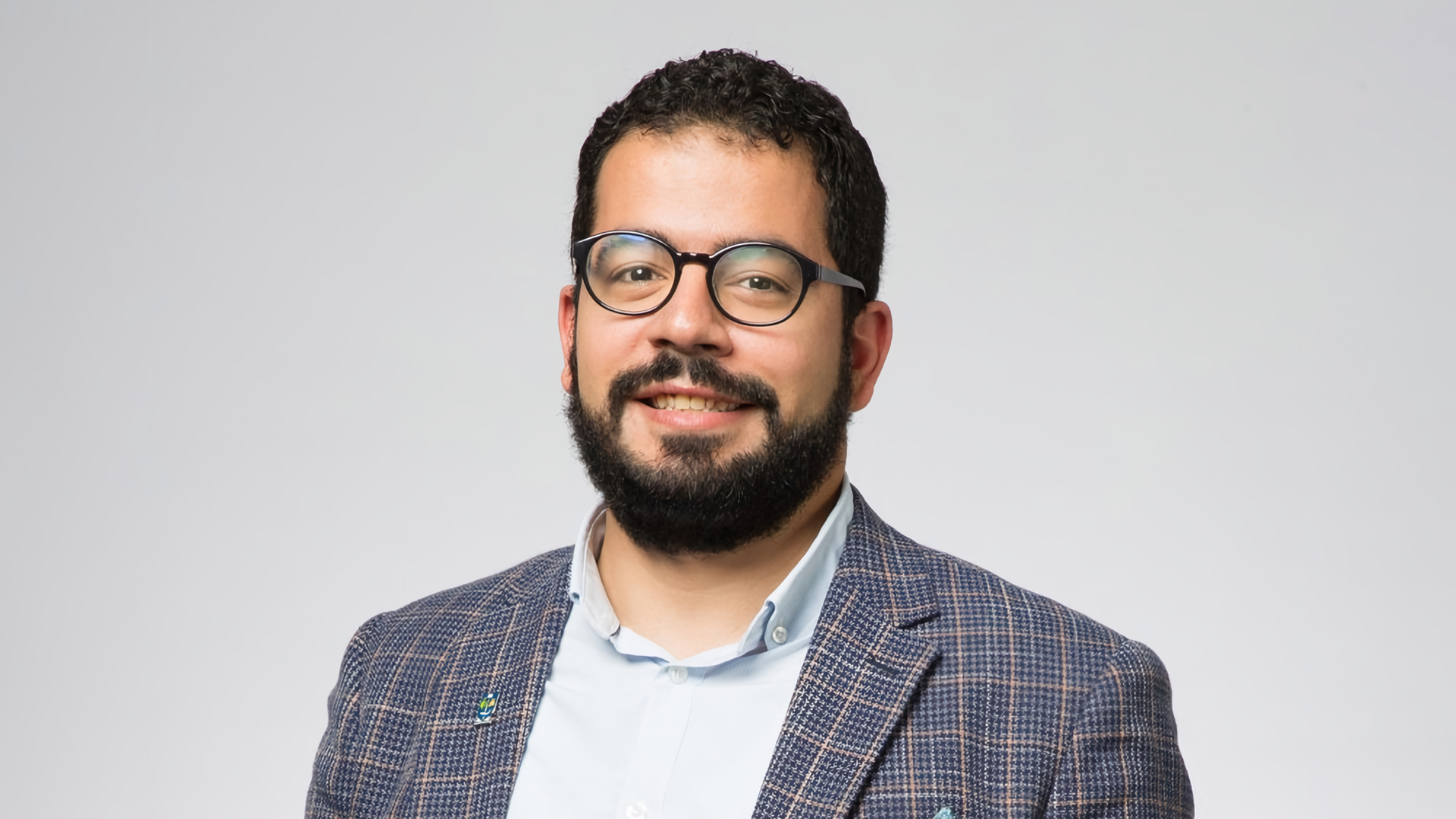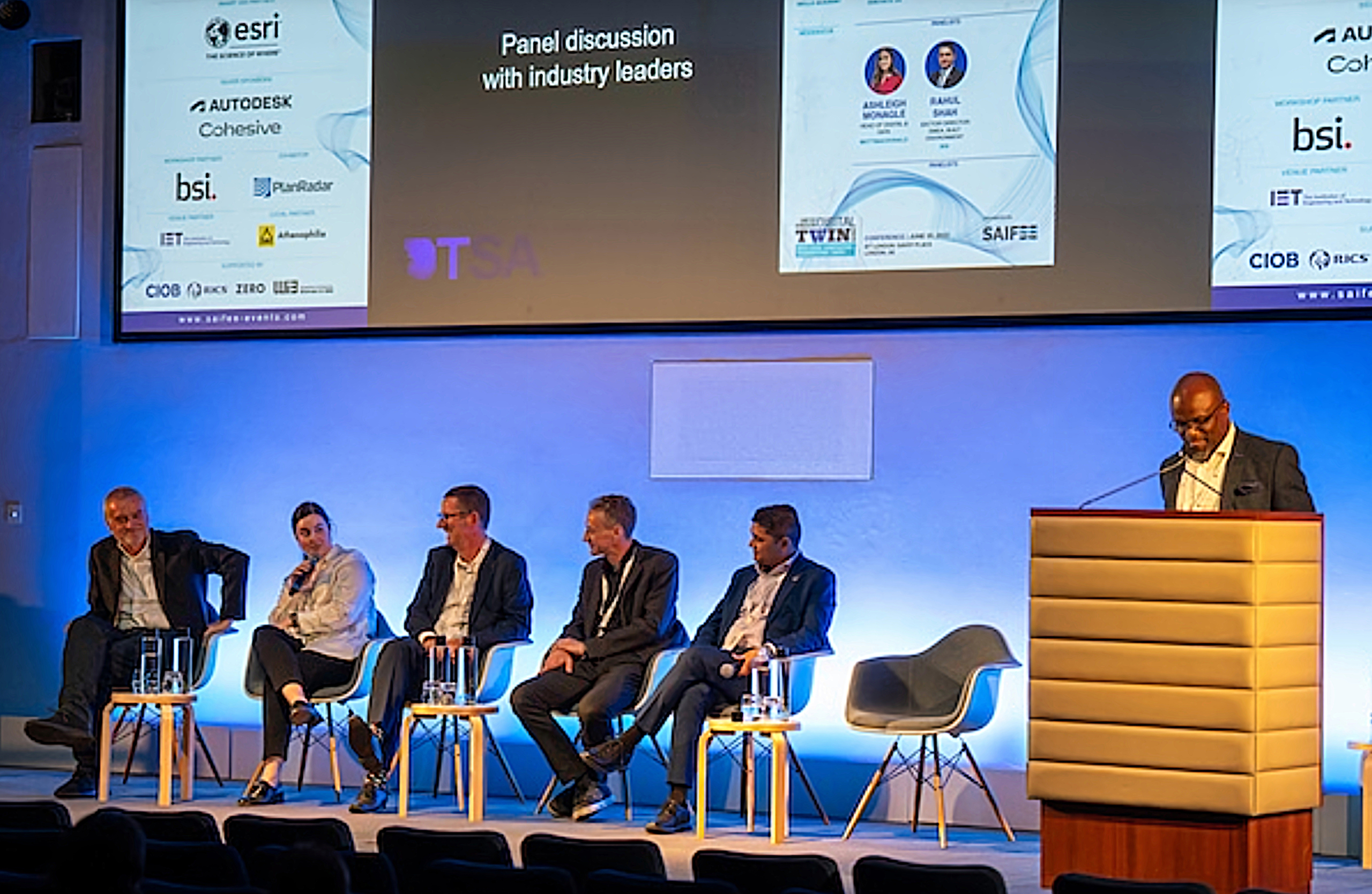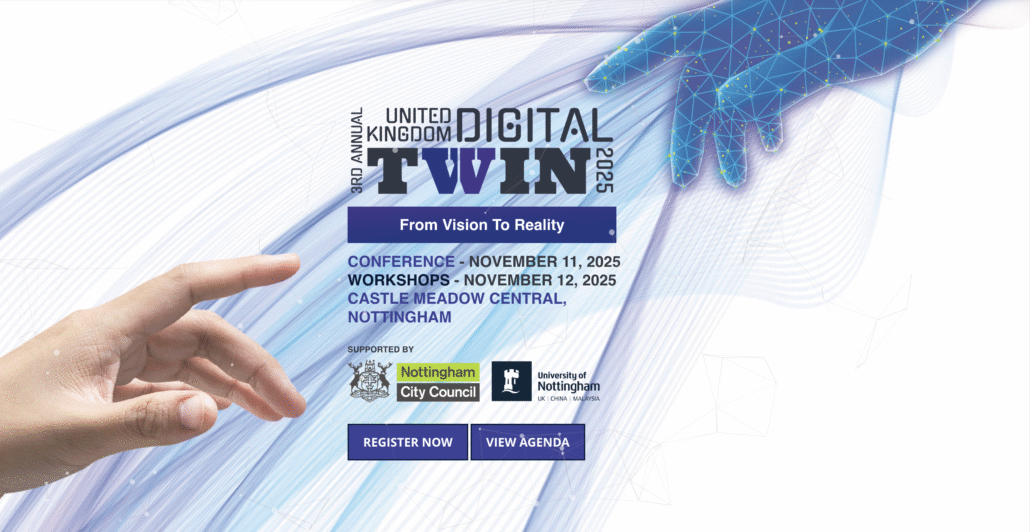TransiT experts to present at UK Digital Twin 2025 event
Two of our TransiT experts are taking part in next week’s UK Digital Twin 2025 event in Nottingham.
Our Co-Investigators Dr Christina Latsou and Dr Ahmad Taha will help to present two workshops on the second day of the event. These focus on digital twinning and the future of transport systems, and digital twin collaboration in transport infrastructure.
The sessions will outline how TransiT is using digital twinning technologies to model and integrate transport decarbonisation scenarios across various transport modes.
The UK Digital Twin 2025 conference and workshop event has the theme ‘From Vision to Reality’ and brings together digital leaders, visionaries and innovators from the smart cities, urban planning and built environment sectors.

Dr Christina Latsou
Dr Latsou is a mechanical engineer by background and an expert in modelling and optimising complex systems. She is based at Cranfield University as a Lecturer in Smart Manufacturing at the university’s Centre for Digital and Design Engineering.
Her workshop session at the UK Digital Twin event focuses on digital twinning and the future of transport systems. Dr Latsou will outline TransiT’s vision and help participants understand the difference between digital models, digital shadows and digital twins. Of these, only digital twins deliver a two-way data flow into and out of the physical world. This enables them to identify improvements, for example, how to operate more efficiently.
Dr Latsou will also help her workshop participants explore what insights and outputs each of these digital entities could deliver in a transport setting.
She explains: “In the transport sector, we can think about what outcomes we want from each level of digital representation – the model, the shadow, and the twin – and how these can evolve over time to support smarter, more connected and decarbonised transport networks.”

Dr Ahmad Taha
Dr Ahmad Taha is an electrical, electronics and systems engineer by background and an expert in cyber-physical systems, a key enabler of digital twinning. He is a lecturer in autonomous systems and connectivity at the University of Glasgow.
The workshop Dr Taha is helping to present focuses on digital twin collaboration in transport infrastructure and is led by Connected Places Catapult, the UK’s innovation accelerator for cities, transport, and place leadership.
This interactive workshop looks at examples from different transport sectors and explores the data sharing infrastructure that supports it – for example, sensors connected to vehicles, roads and tracks.
Dr Taha explains: “TransiT is using digital twins to optimise and decarbonise transport in the UK. Our workshop is designed to complement the morning workshop session on Digital Twinning and the Future of Transport Systems, and to showcase the transformative potential of digital twin technologies across sectors including smart cities, construction and transport.
“Attendees will gain practical insights into implementation challenges, partnership models and cross-sector data sharing, with a special focus on future-proofing infrastructure and climate resilience.”

A previous UK Digital Twin event.
Now in its third year, the UK Digital Twin conference is two-day event taking place on 11 and 12 November 2025 at the Castle Meadow Central venue in Nottingham.
Day one on 11 November is the event’s main conference, with keynote speakers, panels and technical sessions featuring central and local government, universities, and industry pioneers.
Day two on 12 November features in-depth workshops offering hands-on technical knowledge and real-world implementation strategies for digital twin applications in the built environment, energy, and urban innovation sectors.
There will also be a seminar by the 3D Network event at the Association for Geographical Information (AGI). This is a network focused on 3D geospatial data and the challenges and opportunities it presents for smart cities and infrastructure.
TransiT is a national research hub focused on using digital twins to rapidly decarbonise transport in the UK, including road, rail, air and maritime. It is a collaboration of eight universities and almost 70 industry partners, supported by the UKRI Engineering and Physical Sciences Research Council and jointly led by Heriot-Watt University in Edinburgh and the University of Glasgow.
Our university partners are University of Leeds, University of Birmingham, Cranfield University, University College London, University of Cambridge and Durham University.
Our industry partners include DHL, East Midlands Airport, Tesco, John Lewis Partnership, Bentley Systems, Dover Harbour Board, WSP, Network Rail, Stena and NVIDIA.
Digital twins are virtual replicas of the physical world that allow systems and scenarios, including transport decarbonisation, to be tested much faster and more affordably than in real-world trials.



